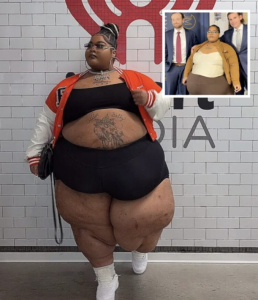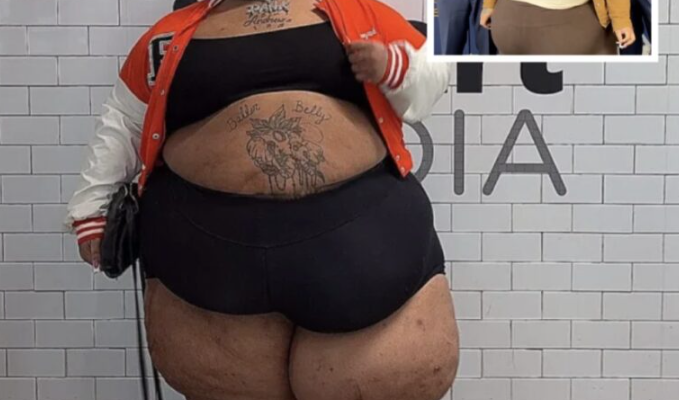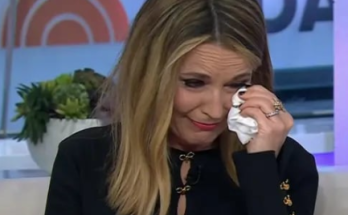Female Rapper Sues Lyft After Driver Refused to Pick Her Up
A rising female rapper is taking legal action against rideshare giant Lyft after she claims one of its drivers refused to pick her up — allegedly because of her body size. The case has quickly captured public attention, sparking conversations about discrimination, inclusivity, and the responsibilities of companies in the gig economy.
The Incident
According to the rapper’s legal filing, the incident took place on a Friday evening earlier this year. She had just finished an interview at a local radio station and ordered a Lyft to take her to her next appearance. Everything seemed routine — she entered her location, confirmed the fare, and received the driver’s details.
But within minutes of the car pulling up nearby, she says the driver canceled the ride without speaking to her. She claims she then received a text message from the driver saying, “Can’t fit you in my car — sorry.”
The rapper, known for her unapologetic style, says she was humiliated and left stranded on the street in front of fans and colleagues. “I’ve dealt with trolls online, I’ve dealt with body-shaming in the music industry,” she later told reporters. “But being denied a basic service like this, in person, was something else. It made me feel like I didn’t even deserve to be treated like a human being.”
The Lawsuit
Her legal team has filed a civil complaint against Lyft, alleging:
-
Discrimination based on physical appearance and body size — a violation of certain state and local anti-discrimination laws.
-
Breach of service agreement — claiming that Lyft failed to uphold its own policies that promise “equal access” for all customers.
-
Emotional distress — citing the humiliation, embarrassment, and distress the incident caused.
The suit seeks both compensatory damages for emotional harm and punitive damages meant to hold Lyft accountable and discourage similar incidents in the future.
Lyft’s Response
Lyft issued a brief statement acknowledging the complaint:
“We are aware of the allegations and take them very seriously. Lyft has a strict non-discrimination policy, and any driver found to be in violation of that policy will face appropriate action, including removal from the platform.”
However, the company declined to comment further on specifics, citing ongoing legal proceedings.
Industry Standards and Grey Areas
Rideshare companies like Lyft and Uber operate under a hybrid system — their drivers are independent contractors, not employees. This setup allows for flexibility but can also create grey areas when it comes to enforcing policies consistently.
Transportation law experts point out that while federal law prohibits discrimination on the basis of race, religion, or disability in public accommodations, protections for body size vary from state to state. In some areas, there are no explicit legal protections for individuals discriminated against because of their weight or physical build.
“This case could be a precedent-setter,” says attorney Daniel Kline, who specializes in civil rights litigation. “If the court rules in the rapper’s favor, it could expand the interpretation of what counts as unlawful discrimination in the rideshare industry.”
Public Reaction
Social media exploded after the rapper posted about the incident. Her initial Instagram post — featuring a picture of her waiting outside the station and calling out Lyft by name — went viral. Supporters flooded the comments with messages of solidarity, while others debated the complexities of the situation.
Some sided firmly with her:
-
“Nobody should be denied service because of their body. Period.”
-
“This isn’t about the car size. This is about respect.”
Others, however, suggested that practical concerns might have played a role, pointing out that certain smaller vehicles have limited space. Still, many critics countered that the driver could have simply communicated politely or suggested alternative arrangements instead of canceling outright.
A Voice for Inclusivity
The rapper, whose music often champions self-love and body positivity, says she’s using the lawsuit not just to seek justice for herself but to speak for others who may have faced similar experiences but didn’t have the platform to address them.
“I’m not just doing this for me,” she said in a press conference. “I’m doing it for every person who’s been made to feel like they don’t belong, who’s been told ‘no’ because of the way they look. This isn’t just about a car ride — it’s about dignity.”
The Broader Conversation
Body size discrimination — sometimes referred to as “sizeism” — has been an under-discussed form of bias for decades. Advocates argue that it impacts everything from hiring decisions to healthcare treatment, yet legal protections remain limited.
In recent years, several U.S. cities — including New York City and San Francisco — have passed ordinances making it illegal to discriminate against someone because of their weight. Activists are now pushing for similar laws nationwide.
Transportation services, especially those like rideshares that market themselves as universally accessible, are often at the center of these discussions. How do they ensure every customer receives equal treatment, regardless of body type, while also allowing drivers to operate within their vehicle’s safe limits?
Potential Outcomes
If the rapper’s lawsuit succeeds, it could prompt rideshare companies to introduce clearer guidelines and better training for drivers. Possible measures might include:
-
Requiring drivers to confirm vehicle space before accepting rides.
-
Offering larger-vehicle options at no additional cost in cases where space is a concern.
-
Implementing stronger disciplinary measures for discriminatory behavior.
On the other hand, if the court sides with Lyft, it may reinforce the current flexibility drivers have in deciding whether to accept or cancel rides — though it could also fuel public pressure for stronger anti-discrimination laws.
What’s Next
The case is set for its first hearing later this year. Legal experts expect both sides to present evidence ranging from driver records to app-based communication logs. Witnesses may include bystanders from the night of the incident, as well as experts on discrimination law.
For now, the rapper remains vocal about her determination to see the case through. “This isn’t just a headline for me,” she wrote on Twitter. “This is about making sure nobody else gets left on the curb because of how they look.”
Conclusion
What began as a canceled rideshare trip has now escalated into a legal battle with the potential to influence the future of customer rights in the gig economy. Whether the court ultimately rules in her favor or not, the rapper’s case has already sparked a much-needed public conversation about inclusivity, respect, and the everyday realities of discrimination.
In the meantime, her fans have rallied behind her, turning her experience into a rallying cry for change — and proving once again that in the age of social media, no injustice goes unseen for long.


